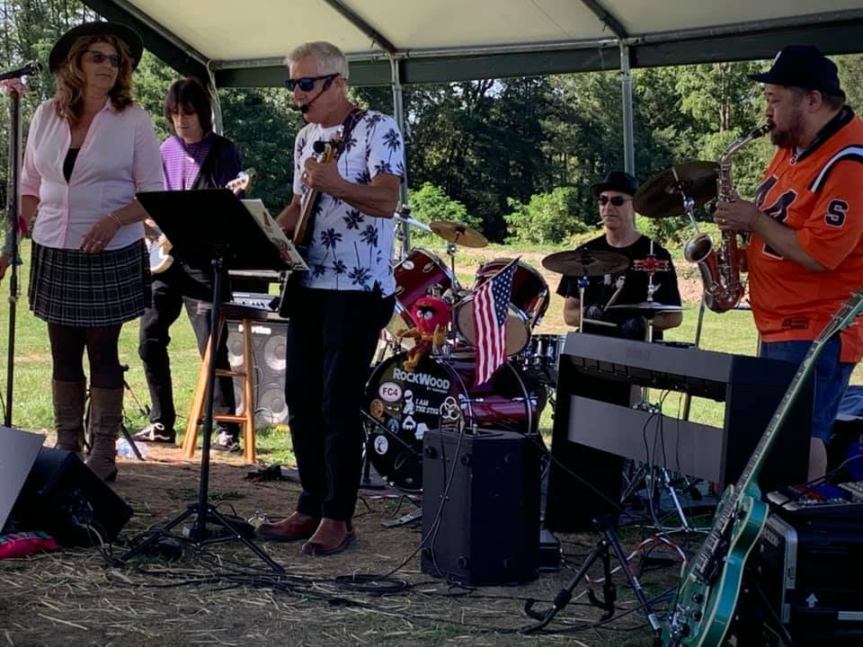As I write this, we're already a few days into 2024. I hope everyone had a happy, festive, and safe holiday -- whatever holiday you celebrate -- as well as an equally festive New Year's celebration. For me, personally, New Year's Eve was a quiet evening in my living room along with my wife, and New Year's … Continue reading Goals for 2024
Category: Hobbies
My first robotics competition
Last Saturday, I had an opportunity to attend my first robotics competition! The opportunity came up when my friend Andy Levy came to town with his team for a competition! Andy wrote a couple of 'blog articles about his robotics experience; you can read them here and here! It was a fun time, and I … Continue reading My first robotics competition
Hey #SQLFamily, who would be up for a #SQLJamSession? #PASSDataCommunitySummit #Networking #Activities
When I saw Steve Jones at New Jersey SQL Saturday earlier this year, I made him a promise. Steve knows that I'm into music. He said he wanted to hear me play sometime. I told him, "if you can find me a piano at PASS Summit, I'll play!" The other day, Steve posted a 'blog … Continue reading Hey #SQLFamily, who would be up for a #SQLJamSession? #PASSDataCommunitySummit #Networking #Activities
Make time for your art
This pic above showed up in a Facebook meme, and it spoke volumes to me. To sum up my thoughts in only a few words, I'm an artist. Okay, I suppose some context is in order; after all, I am writing this as a 'blog article. For the benefit of those of you who don't … Continue reading Make time for your art
Support your local artists
A little while ago, a friend of mine from high school sent me a message (along with a link) saying that his band was scheduled to perform a gig pretty much in my own backyard. I added his gig date to my calendar, and I will make the effort to attend. I have to admit … Continue reading Support your local artists
Getting my music heard
As some of you may know, when I'm not coming up with ideas for professional development 'blogs, I'm a musician on the side. I'm a classically-trained pianist, and I also play the clarinet, saxophone, and mallet percussion instruments as well. I perform in a large symphonic concert band, I accompany a local church choir, I … Continue reading Getting my music heard
The #Coronavirus chronicles, part 24: Coping with the stress #COVID19
I'm not going to lie. The mental stress of being out of a job (ten months, and counting) is affecting me in many ways. I'll talk about the mental stress (which is what this article is mostly about) in a minute, but before I get into that, let me talk about something that has been … Continue reading The #Coronavirus chronicles, part 24: Coping with the stress #COVID19
The #Coronavirus chronicles, part 23: Learning songs in a new language #COVID19
Before I get into this article, I need to direct you to a few other articles that I wrote, all of which are directly relevant to what I'm about to write. You will likely not understand some of the references in this article unless you read these other ones first (or are friends with me … Continue reading The #Coronavirus chronicles, part 23: Learning songs in a new language #COVID19
#TheBestOf… Bringing the world together by telling us about your special world
A wandering mind can be a dangerous thing. 🙂 If you're a 'blogger who's looking for something to write about, read on. Perhaps this will give you an idea. This afternoon, I was doing a mundane, household chore (specifically, I was washing dishes and doing some cleaning in the kitchen), and whenever I do mundane … Continue reading #TheBestOf… Bringing the world together by telling us about your special world
The #Coronavirus chronicles, part 19: Revisiting MIDI sequencing and songwriting #COVID19
Years ago -- another lifetime ago, it seems -- I was a songwriter. I actually had several demos that I put together (you can listen to them here), and I had a few friends who helped me put them together (mostly because I don't play the guitar, and I can't sing worth a damn). My … Continue reading The #Coronavirus chronicles, part 19: Revisiting MIDI sequencing and songwriting #COVID19




